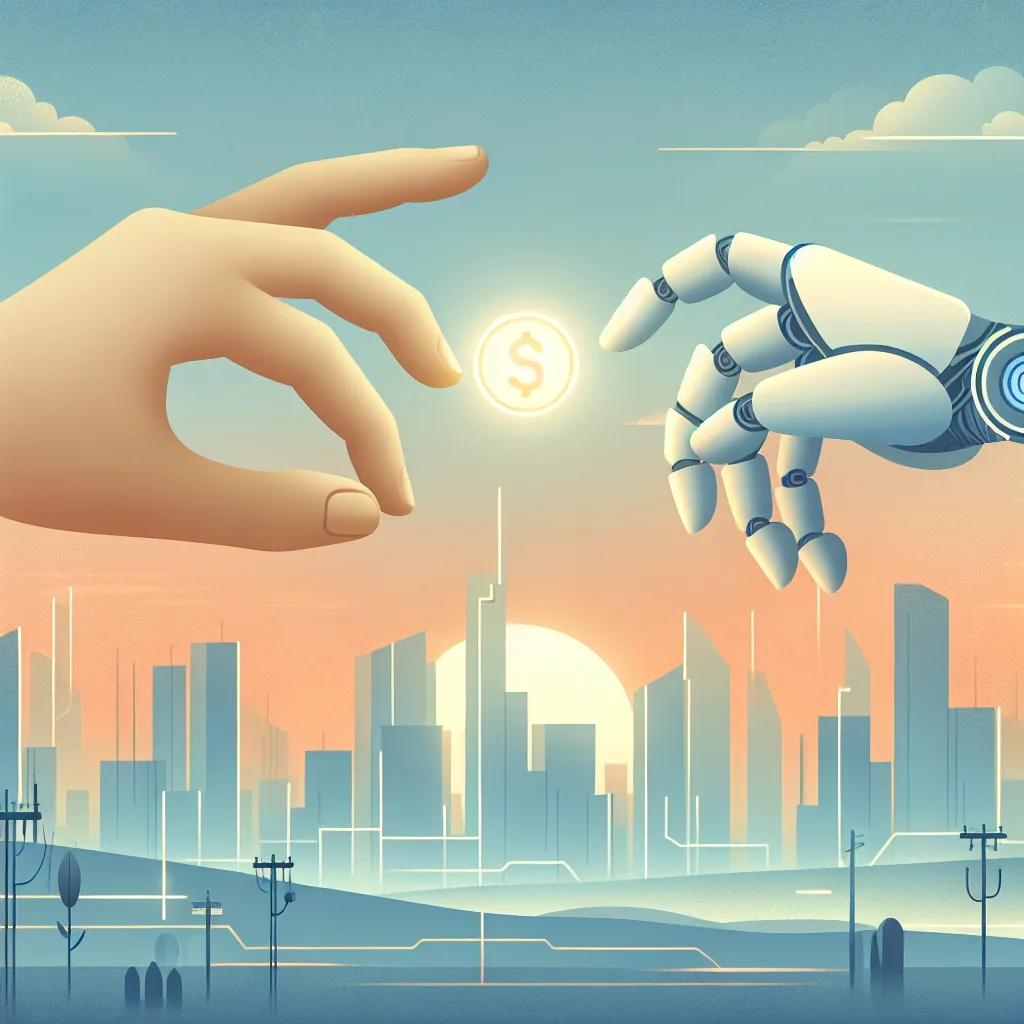Instead of just taking our jobs, what if AI could help build a fair and stable economy for everyone?
It feels like every other day there’s a new headline about artificial intelligence. And let’s be honest, a lot of it is pretty scary. The conversation usually goes straight to job losses, and this looming dread that we’re all about to be replaced by hyper-efficient algorithms. But what if we’re looking at it all wrong? I was chatting with a friend about this, and we landed on a fascinating thought: what if the same AI that’s causing all this disruption could also be the key to solving it, specifically when it comes to AI and UBI (Universal Basic Income)?
It sounds a little like science fiction, I know. But stick with me. We’re already seeing a future where many jobs, both blue and white-collar, might become automated. The idea of a UBI—a regular, unconditional payment to every citizen—often comes up as a safety net. The problem is, it’s incredibly complex. How much do you give? How do you prevent inflation? How do you manage the logistics for millions of people? The political and economic debates are endless.
This is where the idea gets interesting. What if we handed the problem over to AI?
Why an AI-Powered UBI Isn’t as Wild as It Sounds
We already trust AI to handle incredibly complex systems. Think about global logistics, high-frequency stock trading, or even helping scientists model climate change. These systems process trillions of data points to find patterns and efficiencies that no human team ever could. As researchers at centers like Stanford’s Institute for Human-Centered Artificial Intelligence (HAI) are showing, AI is fundamentally a tool for complex problem-solving.
So, why not apply that same power to social economics?
An AI could, in theory, design a UBI system that works. It could analyze real-time economic data, from local housing costs to the price of groceries in every single city. It could model thousands of scenarios to determine a payment amount that provides a genuine safety net without destabilizing the economy. It could do all of this without political bias or human error, creating a system that’s fair and responsive. The goal wouldn’t be to have an AI “rule” us, but to use it as an incredibly powerful calculator to create a stable economic floor for everyone.
But Wouldn’t the Wealthy Just Shut It Down?
This is usually the first objection, right? The idea that the people at the top would never agree to a system that distributes wealth more evenly. It’s a valid concern.
But let’s think it through. What’s the alternative? A world with mass unemployment, instability, and societal collapse isn’t exactly a paradise for anyone, including the ultra-rich. What’s the point of owning a mega-yacht if the ports are in chaos and the society that builds and fuels it has crumbled?
It’s logical to assume that a stable, functioning society is in everyone’s best interest. An AI could potentially model a system where the needs of the populace are met while still allowing for wealth creation and innovation. It’s not about punishing success; it’s about ensuring the entire system doesn’t collapse on itself. The AI’s job would be to find the optimal balance point—the win-win scenario that human politics often struggles to find.
A Glimpse into a Future with AI and UBI
So what could this actually look like?
- Dynamic Payments: Instead of a fixed, one-size-fits-all payment, the AI could adjust the UBI based on local costs of living, updated in real-time. Someone in New York City would get more than someone in a small rural town.
- Efficient and Fraud-Proof: Distribution could be handled through a secure digital system, cutting out massive layers of bureaucracy and reducing the potential for fraud.
- Economic Foresight: Before implementing any changes, the AI could run simulations to predict the impact on inflation, consumer spending, and the job market, allowing policymakers to make informed, data-driven decisions.
This isn’t about replacing human governance. It’s about upgrading it. We would still need human oversight, ethical debates, and the final say. But instead of guessing, we’d be working with the most powerful analytical tool ever created. Organizations like The Basic Income Earth Network (BIEN) are already exploring the complexities of UBI, and AI could be the missing piece to solve the implementation puzzle.
The conversation around AI is so often framed by fear. We fear what we’ll lose. But maybe it’s time to start talking about what we could gain. Instead of an apocalypse, maybe automation could lead to a world where our basic needs are secure, freeing up humanity to focus on creativity, community, and problems we can’t even imagine yet. The AI that takes the job could also be the AI that builds a better, more stable world for everyone. And that’s a future worth thinking about.
